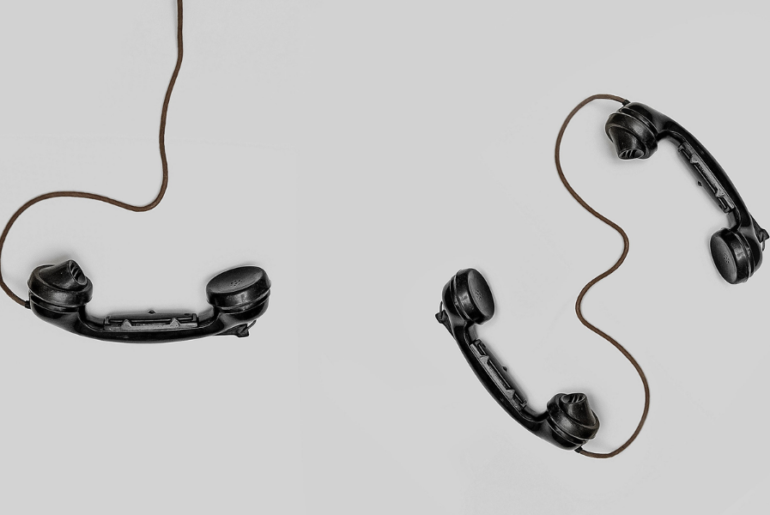As we know life is about choices. Everything that happens is a product of our choice. Some of it is just as easy as choosing what to eat for breakfast. However, some choices decide our life and future– these are the choices that we make when we come across a big problem.
Whether or not you’re making one of the biggest decisions of your life, you need to ensure that you are doing what’s best not just for you but for everyone. Focus always on the positive note though negative situations are lurking in you.
Not all decisions require a lot of time. We know how to weigh down whether or not the decision we are going to make is important. In circumstances where the chance of making poor decisions is relatively low, we tend to follow our gut feeling instead.
On the other hand, an organized approach to decision-making is needed if the impact of the decision is serious and that will risk something. We have more decisions to make than before. We always hope and want that every decision we make will not make us regret wondering what if we could’ve done better.
We want to make decisions that will make us proud in the end but that is not how life goes. There are decisions we make at some points in our life that could make us stumble but we should learn from them to not commit them again.
In this post, we are going deeply talk about the following:
- What is decision-making?
- Why is good decision-making so important?
- What are the tips for decision-making?
- What decision-making skills should you have?
- Why Do We Make Poor Decisions?
What is decision-making?
Decision-making is the process of making choices by identifying a decision, gathering information, and assessing alternative resolutions.
Simply, the definition of decision-making from the word itself is the action of making a decision. We usually make logical decisions but there are more irrational and emotional decisions we’ve made.
Why is good decision-making important?
Decision-making is part of every minute of our life. We even cannot stress enough how important decision-making is.
Here are the things that explain why good decision-making is important:
- It helps manage and solve the problem. When a problem arises, you need to carefully understand the problem and so decide what to do with the problem. How are you going to manage it? Here comes decision-making. Decide what solutions you want to implement to solve it.
Jeff Mains, CEO of Champion Leadership Group LLC, says, “The way you handle a problem is far more likely to be remembered than the nature of the problem itself.”
He also added, “You may not be able to prevent every disagreement or stressful scenario from occurring, but you can manage your reaction to them.” It means you decide how you are going to react to solve the problem.
- It empowers you as a person. This has to do with values and your development as a person by making decisions. Deciding on things based on our values and reviewing every decision we make will not make us regret it.
“Sometimes, we have a decision alternative that seems almost perfect as it meets all criteria, except for that strange feeling that something is not right. We should investigate how well our decisions tie with our values. We will feel much more comfortable, confident, and empowered to decide this way,” an expert insight from the Founder of Coaching Expatriates, Taty Fittipaldi.
- It makes you move forward without worry. There will always be choices in decision-making. Most of us are afraid of making bad decisions but the truth is we should bear in mind that making good decisions is just based on our common sense.
It does not require expertise or high educational attainment. If you made a bad decision, learn from it and make it a good decision the next time around.
What are the tips for decision-making?
- Know your values and goals.
Our values are the reason why we are motivated to reach our goals. Because of these goals that we set, we will know our priorities in life, which will guide us in decision-making that will affect our viewpoint on success and life.
Gerrid Smith, Director of E-commerce at Joy organics says, “Carve out your path and follow it. We detail the actions you’ll take to achieve your goals.”
- Do not stress yourself out and keep calm.
Of course, it’s normal to be stressed out especially when you are choosing between tough choices. But take a deep breath and keep calm to avoid making rush decisions. Think it through.
Suburbrealtor founder, Rina Patel says, “This might sound drastic but, I’ve found that the best decisions I’ve made have been ones that have been made calmly and rationally.”
“I don’t believe in the gut when it comes to making decisions; rather, I think it’s important to take time to think through a problem before acting on it. This isn’t always easy, especially when you’re feeling stressed out or pressured by others, it might be hard to make decisions based on the best information available. But if you can slow down and give yourself some breathing room, your mind will feel more clear and able to make the right choice,” she added.
- Define and Think of the risks and benefits
When we are required to make decisions, we lost track of things and sometimes forget the real picture. To avoid making rush decisions, take time to write and define the possible risk and the benefits of each choice that you are going to choose from.
Jammie Penny, CEO of Shopping Foodie has the same idea. “Putting pen to paper and making a list of the benefits and drawbacks associated with each action is one approach to successfully imagining the outcomes of your choices. This list may then be used to help you choose among available Options,” she says.
- Talk to someone and ask for opinions.
To have more possibility in arriving at a good decision, you can ask someone for their opinion or perspective about the thing you are having trouble deciding.
According to Kyle Marquardt, co-founder of Lori Wall Beds, “Talk to someone else and get their opinion, as they may be able to provide valuable insight or a different point of view. Even if their advice isn’t what you want to hear, it can still be useful for you to consider.”
When you are done asking for second opinions, consider the variables that would affect your decision and could be impactful to the outcome.
- Embracing the mistakes by making them right.
Mistakes are inevitable. We really can’t avoid committing mistakes and failures. That is part of life the same with decision-making. Embrace your mistake, learn from them decide to take things in a matter of making them right.
Do not lose your trust in yourself because of bad decisions, instead, believe that you can overcome the outcomes. Even if your decision turns out to be not the best one, it is important to always remember that mistakes are always part of any kind of process.
- Look over your options again.
After arriving at decisions and you are still undecided about which one to choose. Look over your options again, and give yourself time to think the which of the choices finally you think you will be more comfortable with.
Sometimes before arriving at this decision-making phase, you are already sure of your decision, but after looking over the options, you discover that the other choice is better.
What decision-making skills you should have?
Making good choices despite the pressure requires skills. Below is the list decision-making list you should have.
- You should be creative.
Creativity is the ability to link or combine ideas in many ways, it helps you create alternatives that you can find useful later on. Creativity allows you to create multiple unique ideas. It is spontaneous and free-flowing thinking. This results in a more logical and rational decision.
When you are creative you keep on welcoming different kinds of ideas. “When we bring in different perspectives, it can lead to more creative and effective solutions to our problems. Plus, when people are part of the decision-making process, they’re more likely to be invested and committed to making it work”, says Todd Bialaszewski, CEO and Founder of Junk Car Medics.
Decision-making is indeed an art that requires creativity.
- You should be an active listener.
Active listening does not end the hearing. It is about absorbing, understanding, responding, and retaining what has been said.
CUBO co-founder and CEO, Leo Ye says, “The most effective problem-solvers, in my opinion, are excellent listeners. Problem-solving includes receiving and analyzing a variety of inputs and perspectives. It is essential that process participants feel heard.”
How to become an active listener?
- Read body language. Not everything needs to be said, body language is enough to convey something. Be always on alert in interpreting non-verbal cues like eye contact and rapid eye movement.
- Avoid interrupting the speaker. I’ll just leave this question here: Who wanted to be interrupted when speaking?
- Ask questions if needed. If you think there are parts of the conversation you did not get and understand, make sure to ask questions. Ask valid questions.
- It requires exceptional adaptability.
You must be flexible in decision-making. You should be open to new information that could influence your decision before receiving it.
There are a lot of positive impacts of being flexible and adaptable. There are some points in our life wherein we do not have any other choice but adapt knowing that we could gain benefits from it.
- You should be good at critical thinking.
When you are good at critical thinking you are most likely to make better decisions. Critical thinking requires you to thoroughly things over, you examine the processes before reaching a verdict.
Critical thinking skills are useful especially when you are deciding from fewer options. In this case, deciding is even more difficult. Concerning this, Dubai’s Best founder Rashid Khan mentioned, “Making a choice may be more difficult if there are several options available. You can make educated selections and develop your critical thinking skills by restricting your options.”
When something is decided systematically, the decision is much more trusted.
- You must know how to manage your time wisely.
In decision-making, there should be no distractions. Here comes time management. When manage time and organize things on time, you can lessen the things that could distract you whenever you need to decide on something.
Follow a certain timeline or give adequate time and carefully carry out the steps needed to arrive at a good decision.
Why do we make poor decisions?
Sometimes we make poor decisions. In life when before success and acceptance, failure and rejection comes first. Human beings make bad decisions because we do not normally assess things logically and objectively.
Nevertheless, we cannot escape from bad decisions. The best we can do is be aware of these decisions and manage the outcome properly.
There are 3 factors why we make poor decisions:
- Assessing the concern using emotion. “I find when giving others advice I am able to logically weigh up the pros and cons of each outcome and make confident decisions as I’m not assessing the situation with the emotion that would be attached if it was my choice to make,” says Emily Owen, owner of Easy Blog Emily.
In other words, it is very crucial to set aside our emotions and personal feeling when deciding on something important.
- Poor perception of time hinders us to make good decisions. We always think that there is always time for everything. Time doesn’t simply work like that. We think that if do something one time, that is it. No! We should not forget that everything is compounding.
No matter how little as long as we decide to continuously do something, it will result in something big. Slow progress is better than procrastination. I cannot stress enough how procrastination is negatively affecting our decision-making.
- Decisions are sometimes influenced by their value and status. It is no surprise that human always resorts to biases and prejudices. Now some of us will say, “I am not a biased person and I don’t make baseless judgments.” Right. However, there are times when we unknowingly commit these.
We are affected and our decision is affected because of status though we don’t base it on that. We tend to weigh the importance of those things that are socially valuable. That’s just how it works and our decision-making is derailed by this factor. Decisions are the best when it is not crowded with biases like social status.
At the end of the day, it will be your decision whether or not you choose to make a poor decision. And committing it again is your choice– your worst choice.
Start now! Put decision-making skills to practice from now on
Decision-making is what we do every day consciously and subconsciously. There are choices laid down in everything that we do. Practice what you learn from this post. Equipped yourself with. Do not be afraid to take risks. Successful people are those who are always willing to take risks. Anyway, there are no right or wrong decisions. You yourself be the judge. No one but you can judge your decisions.
If you are having a hard time, feel free to go back to this post.
CONCLUSION
Murphy’s Law says, “What can go wrong will go wrong,” and decisions are certainly no exception.
If something is bound to wrong or right so it will be. Not every decision requires extensive examination and process. Just let it be. What matters is you at least decide, because not being able to decide is also a decision– definitely not a good one.
You and your choice Matter!
There might be worries along the way while making the decision, or after making the decision, but don’t ever forget that you tried your best to reach that certain decision. The positive or negative outcomes, you are ready to face and be accountable for them.
There is a saying, “Life is a matter of choices, and every choice you make makes you.” What you are right now is the product of your choice. You are your best version of yourself every day by getting better every day. This only proves that bad or good decisions– it s what makes you feel complete today!
Chin up! Keep on making an important decision and make it a tool to be more fantastic! This is what I, you, and they ought to know about decision-making.



